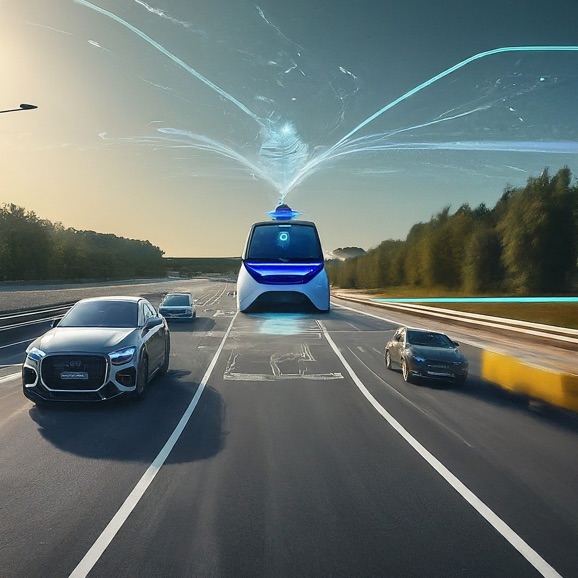SEPs in Automotive Industry - 1st June 2024
The Rise of SEPs in Connected Cars
The automotive industry is undergoing a transformation towards connected vehicles, brimming with features like navigation, internet connectivity, and advanced driver-assistance systems. These features rely heavily on technologies like GPS, Bluetooth, and Wi-Fi, many of which are protected by Standard Essential Patents (SEPs). SEPs are patents essential for implementing a technical standard, and licensing them is crucial for ensuring compatibility and smooth operation across different car models and manufacturers.
For more information on Standard-Setting Organizations (SSOs) and how they develop technical standards, you can visit the websites of relevant SSOs such as 3GPP [https://www.3gpp.org/](https://www.3gpp.org/), IEEE [https://www.ieee.org/](https://www.ieee.org/), and TIA [https://tiaonline.org/](https://tiaonline.org/).
V2X Communication: The Future of Connected Cars A key aspect of connected car technology is Vehicle-to-Everything (V2X) communication. V2X allows vehicles to communicate with other vehicles (V2V), traffic infrastructure (V2I), and pedestrians (V2P). This technology promises significant safety improvements by enabling real-time information sharing on traffic congestion, accidents, and potential hazards. The increasing importance of V2X communication further underscores the role of SEPs in shaping the future of connected cars. Balancing Innovation and Access: The FRAND Principle To foster widespread adoption of these standards and avoid a fractured landscape of incompatible technologies, Standard-Setting Organizations (SSOs) require SEP owners to license them on Fair, Reasonable, and Non-discriminatory (FRAND) terms. This principle ensures a balance between rewarding innovation (fairness to inventors) and enabling broad access to the technology (reasonableness and non-discrimination). However, determining FRAND licensing terms can be a point of contention, leading to disputes between SEP owners and car companies (OEMs). Shifting Licensing Landscape and Legal Developments: Traditionally, carmakers relied on their suppliers to secure licenses for SEP-protected technologies used in car components. However, SEP owners are increasingly seeking to license directly to OEMs. This shift can create friction, as OEMs may argue they're being charged unfairly compared to their suppliers. The document highlights a legal case between Nokia and Daimler, where Daimler contested the FRAND terms of Nokia's SEP licensing practices. To address these complexities, recent developments are attempting to streamline the SEP licensing landscape. The UK Supreme Court's decision allows car companies to obtain global SEP licenses, simplifying the process and potentially reducing costs. Additionally, the European Commission's proposed SEP Regulation aims to standardize licensing practices across various sectors, including automotive, promoting transparency and potentially reducing licensing disputes. Government websites, such as the European Commission [https://commission.europa.eu/index_en](https://commission.europa.eu/index_en), may have information on SEP licensing and relevant regulations. Case Laws Shaping the SEP Landscape: Several legal cases have shaped the understanding of FRAND licensing in the context of SEPs. Here are a few noteworthy examples: * Nokia v. Daimler:As mentioned earlier, this case involved a dispute between Nokia and Daimler over the FRAND compliance of Nokia's SEP licensing practices. The case ultimately settled confidentially, but it highlights the ongoing challenges in determining fair licensing terms. *Unwired Planet v. Huawei & Conversant v. Huawei and ZTE:This UK Supreme Court case provided clarity on SEP licensing procedures, particularly regarding the availability of injunctions against implementers who refuse FRAND-compliant licenses. The Indian Scenario and Future Outlook: The concept of SEPs is relatively new in India, and the document explores the legal case of Intex versus Ericsson, which centered on disputes over FRAND licensing terms for SEPs in the Indian smartphone market. This case highlights the need for clear guidelines to ensure fair licensing practices in emerging markets like India. Looking ahead, new working groups like the 5G Automotive Association (5GAA) are actively involved in standardizing technologies for future connected vehicles. Legal decisions and regulatory frameworks are also evolving to shape SEP licensing practices in the automotive industry, fostering a more balanced and efficient ecosystem for innovation and technological advancement. As V2X communication becomes increasingly prominent, SEPs will undoubtedly play a critical role in ensuring interoperability and safety in the future of connected cars.

 .
.